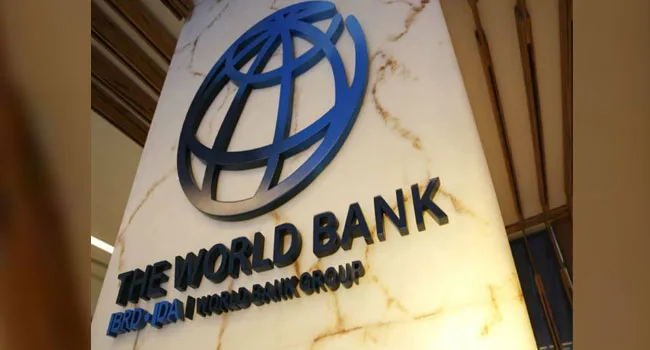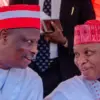The World Bank has approved a $1.5 billion loan to Nigeria, following the Federal Government’s implementation of key economic reforms, including the removal of fuel subsidies and the introduction of new tax policies.
In a statement, the World Bank announced it had approved two operations: a $1.5 billion loan for the Nigeria Reforms for Economic Stabilization to Enable Transformation (RESET) Development Policy Financing (DPF) program, and $750 million for the Nigeria Accelerating Resource Mobilization Reforms (ARMOR) Program-for-Results (PforR).
This combined $2.25 billion package provides Nigeria with critical financial and technical support to stabilize its economy and bolster assistance for the nation’s most vulnerable citizens. According to a document released by the World Bank, this funding supports Nigeria’s efforts to raise non-oil revenues, safeguard oil revenues, promote fiscal sustainability, and ensure resources are available to deliver quality public services.
The $1.5 billion loan is structured in two tranches, each with different maturity periods. The first tranche, worth $750 million, comes from the International Development Association (IDA), with a 12-year maturity and a six-year grace period. The second tranche, also $750 million, comes from the International Bank for Reconstruction and Development (IBRD), with a 24-year repayment period and an 11-year grace period.
The first tranche of $750 million was disbursed on July 2, 2024, while the second tranche was released in November 2024, following the fulfillment of specific economic reform conditions.
The World Bank emphasized that the RESET DPF is designed to help Nigeria strengthen its economic policy framework by creating fiscal space and protecting the economically vulnerable. Meanwhile, the ARMOR PforR aims to support tax and excise reforms, improve tax revenue and customs administration, and safeguard oil revenues.
The World Bank document stated: “Faced with a fragile economic situation, Nigeria recognized the urgency of change and embarked on critical reforms to address economic distortions and strengthen the fiscal outlook. Key actions have already been taken to restore macroeconomic stability, boost revenues, and lay the foundation for growth and poverty reduction.”
The document highlighted significant reforms, including the unification of exchange rates and the market-determined official exchange rate, as well as the removal of the costly and regressive fuel subsidy through a sharp gasoline price adjustment. The Central Bank of Nigeria (CBN) has refocused on its core mandate of price stability and has tightened monetary policy, including raising interest rates to combat inflation. Additionally, a targeted cash transfer program has been rolled out to help mitigate the impact of high inflation on the poor and economically vulnerable households.
The World Bank also commended the Nigerian government for meeting and exceeding expectations, particularly with the full deregulation of the fuel market. The document noted that while the Tranche Release Conditions (TRC) called for a gradual change, Nigeria implemented the fuel price change immediately, surpassing the specified requirements. Effective October 2024, gasoline prices have been determined by international market forces and the exchange rate set by the Central Bank of Nigeria.
Commenting on the loan, Ousmane Diagana, World Bank Vice President for Western and Central Africa, said: “Nigeria’s determined efforts to implement broad macro-fiscal reforms have placed the country on a new path that can stabilize its economy and lift its people out of poverty. It is critical that the country maintains the reform momentum and continues to scale up protection for the poor and economically vulnerable to alleviate the cost-of-living pressures on citizens.”
This financing package reflects the World Bank’s strong partnership with Nigeria and its commitment to supporting the country’s efforts to reinvigorate its economy and accelerate poverty reduction, offering hope for broader economic growth across Africa.


